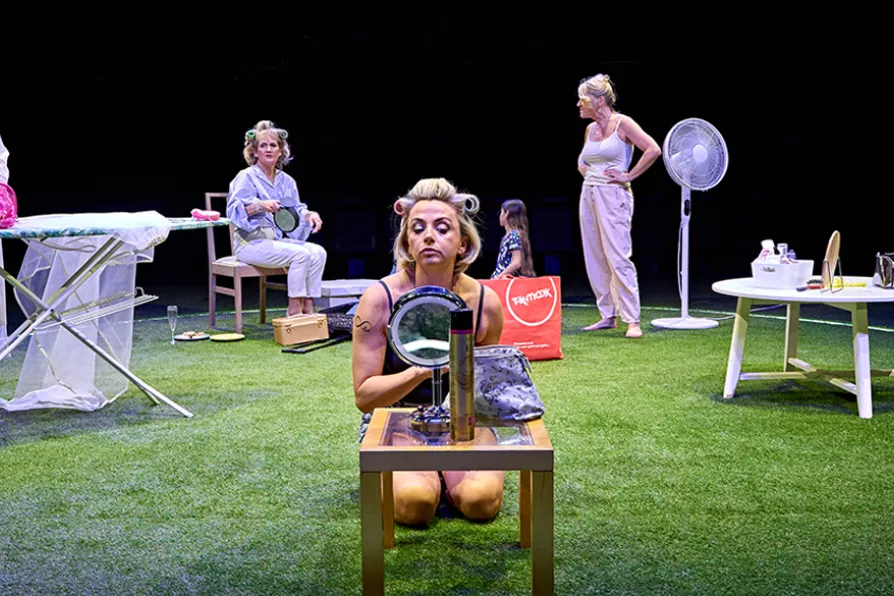RON JACOBS welcomes a timely history of the Anti Imperialist league of America, and the role that culture played in their politics
Mansfield Polak
In communities where exploitative warehouses have replaced coal mines, Beth Steel has fashioned an uproarious state-of-the-nation comedy, says MARY CONWAY

 DEVASTATING: Sinead Matthews (Sylvia), Lorraine Ashbourne (Aunty Carol), Lisa McGrillis (Maggie) and Lucy Black (Hazel) in Till the Stars Come Down at the National Theatre
[Manuel Harlan]
DEVASTATING: Sinead Matthews (Sylvia), Lorraine Ashbourne (Aunty Carol), Lisa McGrillis (Maggie) and Lucy Black (Hazel) in Till the Stars Come Down at the National Theatre
[Manuel Harlan]
Till the Stars Come Down
NT - Dorfman
TO watch the National Theatre embracing a play set in Mansfield feels like the nearest thing we’ve seen to levelling up in a long time. And it’s a beautifully crafted piece.
This world premiere by Beth Steel is real, deeply engaging and so uproariously funny that when the hard truth bubbles intermittently to the surface, its devastating and hyperbolic impact hits with exaggerated force.
The play takes place at a family wedding between Sylvia and local Polish worker, Marek.
Similar stories

Although this production was in rehearsal before the playwright’s death, it allows us to pay homage to his life, suggests MARY CONWAY

MARY CONWAY applauds the success of Beth Steel’s bitter-sweet state-of-the-nation play

MARY CONWAY admires an accomplished drama that explores the consequences of a fatal punch on a desolate housing estate

MARY CONWAY recommends a beautifully judged performance that shines a light on the experience of all female war babies and boomers










